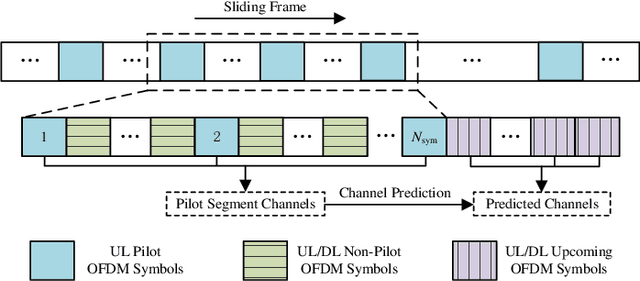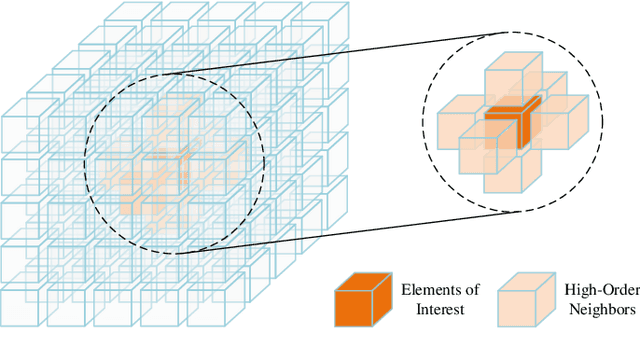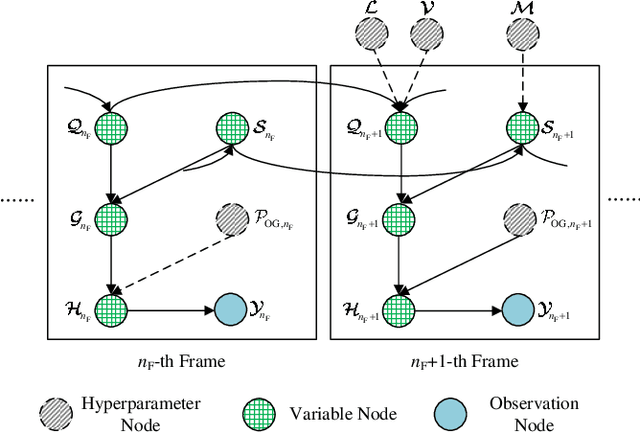A Tensor-Structured Approach to Dynamic Channel Prediction for Massive MIMO Systems with Temporal Non-Stationarity
Paper and Code
Dec 09, 2024



In moderate- to high-mobility scenarios, channel state information (CSI) varies rapidly and becomes temporally non-stationary, leading to significant performance degradation in channel reciprocity-dependent massive multiple-input multiple-output (MIMO) transmission. To address this challenge, we propose a tensor-structured approach to dynamic channel prediction (TS-DCP) for massive MIMO systems with temporal non-stationarity, leveraging dual-timescale and cross-domain correlations. Specifically, due to the inherent spatial consistency, non-stationary channels on long-timescales are treated as stationary on short-timescales, decoupling complicated correlations into more tractable dual-timescale ones. To exploit such property, we frame the pilot symbols, capturing short-timescale correlations within frames by Doppler domain modeling and long-timescale correlations across frames by Markov/autoregressive processes. Based on this, we develop the tensor-structured signal model in the spatial-frequency-temporal domain, incorporating correlated angle-delay-Doppler domain channels and Vandermonde-structured factor matrices. Furthermore, we model cross-domain correlations within each frame, arising from clustered scatterer distributions, using tensor-structured upgradations of Markov processes and coupled Gaussian distributions. Following these probabilistic models, we formulate the TS-DCP as the variational free energy (VFE) minimization problem, designing trial belief structures through online approximation and the Bethe method. This yields the online TS-DCP algorithm derived from a dual-layer VFE optimization process, where both outer and inner layers leverage the multilinear structure of channels to reduce computational complexity significantly. Numerical simulations demonstrate the significant superiority of the proposed algorithm over benchmarks in terms of channel prediction performance.
 Add to Chrome
Add to Chrome Add to Firefox
Add to Firefox Add to Edge
Add to Edge